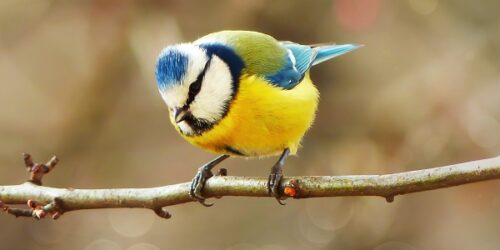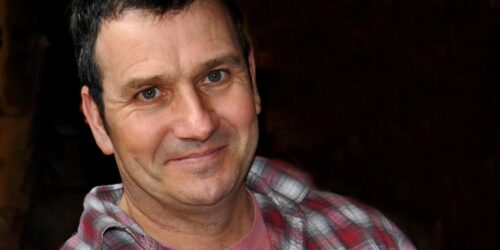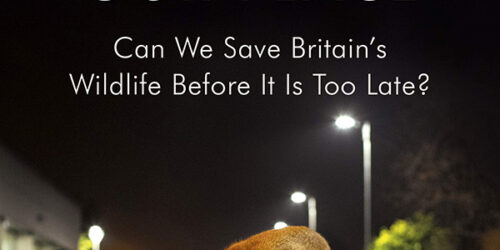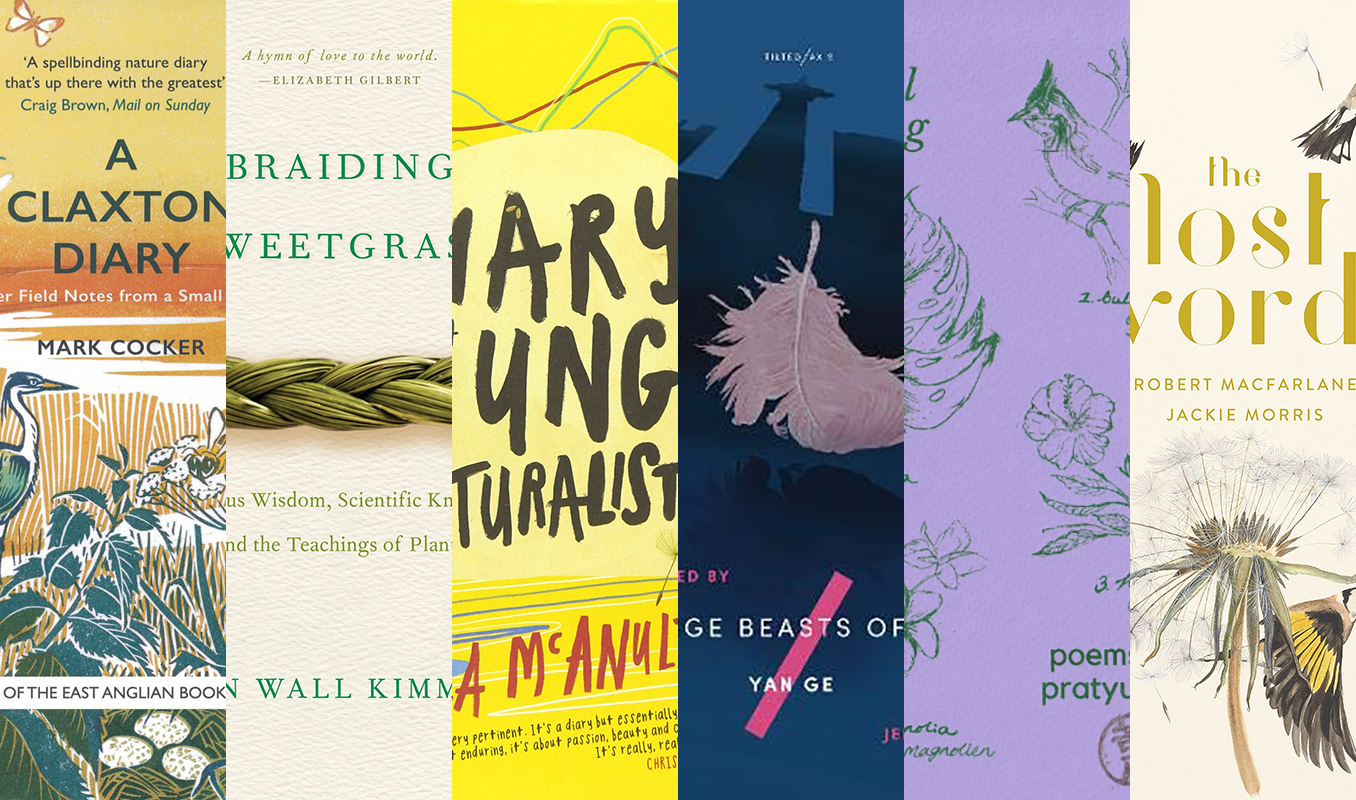
We hope you’ve enjoyed reading Our Place by Mark Coker along with the NCW Book Club. There is still time to look back over the conversation via our Discord community, writing prompts and questions for readers to help you get the most out of reading our chosen book.
If you’ve finished the book and would love something similarly brilliant to add to your ‘To Be Read’ pile, why not try one of these recommended reads? With some help from members of the Book Club and our friends at the award-winning indie bookshop, The Book Hive, we’ve compiled the following list of books in a wide array of genres, all of which continue to explore Mark Cocker’s themes of nature, its relationship to culture, and the scientific and political need for conservation.
For our next Book Club book, we’ll be reading Rope by Khairani Barokka. Watch this space for more details coming soon!
More by Mark Cocker
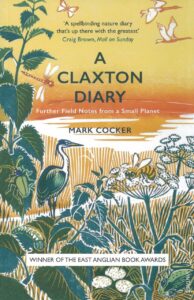 A Claxton Diary: Further Field Notes from a Small Planet (Vintage)
A Claxton Diary: Further Field Notes from a Small Planet (Vintage)
A Claxton Diary brings together Mark’s finest columns and short essays on nature. We follow him through the seasons as he encounters micromoths, ice storms and otters, all as part of his daily walk through the Norfolk countryside. Unflinching in its observations and tender in its curiosity, this book is a brilliant meditation on our place in the natural world.
Crow Country (Vintage)
In Crow Country, Mark follows the fortunes and gets under the skin of one of some of Britain’s most commonplace and overlooked creatures. We’re invited to look at corvids – crows, rooks, jackdaws – as we never have before, to appreciate their music, their relationships and even their inner worlds.
For the full list of Mark’s books, please see his website.
Science & Politics
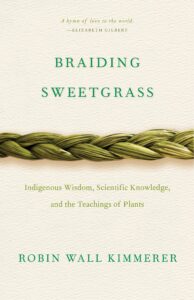 The Great Derangement by Amitav Ghosh (University of Chicago Press)
The Great Derangement by Amitav Ghosh (University of Chicago Press)
Multi-award-winning novelist Amitav Ghosh turns to non-fiction in The Great Derangement to explore the imaginative leaps we need to make in order to confront and mitigate an ecological crisis. The overwhelming scale of environmental change, disinformation and simplification, and the balance between individual responsibility and collective action, can make climate change a difficult subject to write, think, and act on. In this book, Ghosh explores how we might imagine new ways around these difficulties, and to face the real-world problems of our age.
The Book of Trespass by Nick Hayes (Bloomsbury)
Recommended by Book Club member Mark, this book shares Our Place’s attention to the issue of land rights in the UK. Nick Hayes ventures into the many varied landscapes that are barred from public access, and uses the stories of poachers and protestors, ramblers and ravers to imagine a different relationship to our countryside. Writing in the New Statesman, Mark Cocker himself calls this book ‘brilliantly argued’, and a book that ‘explores with clarity and courage an ancient problem in radically new ways.’ If you enjoyed Our Place for its polemic and socio-historical analyses, The Book of Trespass is a great choice for your next read.
Braiding Sweetgrass by Robin Wall Kimmerer (Penguin)
In these essays, botanist Robin Wall Kimmerer blends scientific rigour, indigenous knowledge and personal experience to celebrate the complex lives of plants. We get to know the likes of algae, strawberries and asters through their beauties, habits and senses. Most crucially of all, Wall Kimmerer imparts her expert suggestions for how we might live in a reciprocal relationship with the plants that are essential to life on our planet and have so much to teach us.
Memoir & encounter
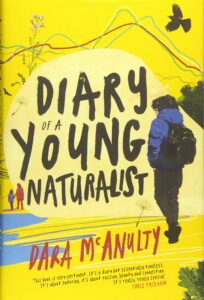 Sightlines by Kathleen Jamie (Sort Of Books)
Sightlines by Kathleen Jamie (Sort Of Books)
Book Club member Fiona recommends Sightlines, a book of fourteen essays in which Scottish writer and naturalist Kathleen Jamie ventures north and encounters a startling array of natural phenomena. Under Jamie’s beautifully written guidance, we meet cells under the microscope, icebergs, orcas and the Northern Lights. Above all, this is a book that centres the power of observation and bids us look closer at the world around us.
Diary of a Young Naturalist by Dara McAnulty (Little Toller)
Dara McAnulty won the Wainright Prize for Nature Writing in 2020, at the age of 16, with this remarkable debut. Following the seasons over the course of one year, Dara details the varied and incredible species he encounters in his garden and surroundings, all while navigating school, family, friendships, and activism. Dara’s sense of wonder in encountering nature is tangible, and this book heralds the arrival of a bright new voice for nature.
Wanderland by Jini Reddy (Bloomsbury)
Jini Reddy’s Wanderland is a magical journey around the British countryside – quite literally. Inspired by the memory of a curious experience on a deserted mountaintop, Reddy sets off to explore a magical, mysterious and spiritual connection to the land. As she takes us to find hidden wells, pilgrim trails and wild art, Reddy raises key questions about our varied relationships to nature, the experience of being othered and excluded from the land, and how we can connect to nature through memory, imagination, and heart.
Fiction & imagination
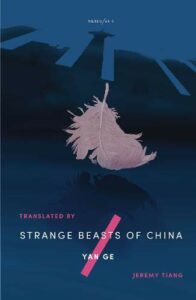 Strange Beasts of China by Yan Ge, translated by Jeremy Tiang (Tilted Axis)
Strange Beasts of China by Yan Ge, translated by Jeremy Tiang (Tilted Axis)
The city of Yong’an is peopled with fantastical creatures… but are they animal, or human? In this novel, constructed from bestiary-like fables, we meet a cast of strange beasts, each one catalogued by the narrator and her former professor. This inventive and unexpected novel, deftly translated by former NCW Translator in Residence Jeremy Tiang, queries the line between the human and the more-than-human to brilliant effect.
Things That Are by Amy Leach (Canongate)
Things That Are garnered praise from the likes of Olivia Laing and NCW Patron Jon McGregor when it was published in 2013, and it’s no wonder. Amy Leach’s joyfully curious and playful book mingles fact, fiction and flights of pure imagination to show us new perspectives on bears, beavers, stars and seeds. These story-essays are lyrical, highly readable, and inviting, and will have you itching to get outside to observe the fascinating creatures with whom we share the world.
Bird Cottage by Eva Meijer, translated by Antoinette Fawcett (Pushkin)
Eva Meijer’s novel constructs a fictionalised life of eccentric naturalist Gwendolen ‘Len’ Howard, who gives up her career as a concert violinist to retreat to a cottage in the English countryside There, her passion for birds soon takes over; there are nestboxes covering her house inside and out, and she forsakes human company in favour of that of Star, a favourite great tit. Bird Cottage is the near-forgotten story of a set of extraordinary interspecies relationships brought back to light in exquisite prose.
Poetry
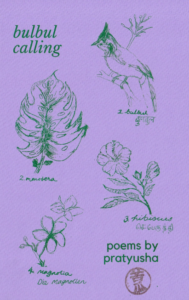 Swims by Elizabeth-Jane Burnett (Penned In The Margins)
Swims by Elizabeth-Jane Burnett (Penned In The Margins)
Swims is a long poem in many parts, each documenting one of Elizabeth-Jane Burnett’s wild swims as she journeys across England and Wales. Burnett’s writing is sinuous and direct, exploring the experience of place through all of the senses. This palpable, innovative book will have you reaching for your swimming cap, and eagerly awaiting Burnett’s next collection, Of Sea, which will be released by Penned In The Margins later this year.
Tongues of Fire by Seán Hewitt (Jonathan Cape)
In his debut collection, Seán Hewitt takes a lyrical look at the elemental forces governing our lives – birth, death, loss and renewal – in poems that are intimate with the rhythms of the natural world. We read of woodlands, herbs and lapwings in poems that verge on songs and prayers. We meet other beings and learn their names, both common and scientific. This is a considered and musical book of poems that balance between the human and non-human, the sacred and profane.
Bulbul Calling by Pratyusha (Bitter Melon)
This beautifully produced pamphlet weaves different languages – both human and bird – to explore transformation and loss in both personal and ecological terms. Pratyusha’s experimental poems seem to shimmer across the page and are paired with evocative line drawings. Bulbul Calling is brief, bold, and an exciting addition to any poetry lover’s TBR.
For younger readers…
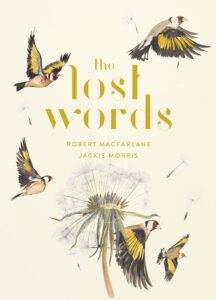 What to Look For in Spring by Elizabeth Jenner and Natasha Durley (Ladybird)
What to Look For in Spring by Elizabeth Jenner and Natasha Durley (Ladybird)
The new generation of Ladybird books are the perfect way to interest younger readers in the natural world. What to Look For in Spring takes in butterflies, blossoms, hares and meteors, and is just one in the new and updated series of books guiding us through the seasons and different habitats. Natasha Durley’s illustrations are charming, and the books are the perfect size to stow in a coat pocket while you and your little ones are out and about.
The Lost Words by Robert Macfarlane and Jackie Morris (Hamish Hamilton)
Another brilliant recommendation from Book Club member Fiona, The Lost Words has been an incredible best-seller, and rightly so. Dismayed at the many ways in which many people are losing access and connection to the natural world, Macfarlane and Morris decided to write the perfect spellbook to enchant us back to the world. The book features poem-songs and beautiful illustrations to help us name, identify and enjoy the many wonderful species that warrant not only conservation but also our celebration.
The Wolf Road by Richard Lambert (Everything with Words)
Richard Lambert’s YA debut tells the story of Lucas, who has lost his parents in an accident caused by a mysterious wolf. Now living with his Nan, Lucas hears stories of a strange creature wreaking havoc in the surrounding countryside. Convinced that it must be the same wolf, Lucas determines to face his mysterious adversary up on the high fells. Taking in grief, courage, and the entwined fates of people and animals, The Wolf Road is the perfect choice for older children and YA fans.
Which other books have resonated with your reading of Our Place? Why not let us know over on our Discord community – sign up here and have your say along with fellow readers and writers.
You may also like...
Writing exercise inspired by Our Place
Try this writing exercise and bring the power of the senses to your nature writing

27th January 2021
Our Place: Questions for readers
Mark Cocker’s ‘sobering and magnificent’ examination of Britain’s relationship with the land is our current NCW Virtual Book Club pick

11th December 2020
NCW Book Club: Our Place by Mark Cocker
Join us and share your passion for reading

5th November 2020



